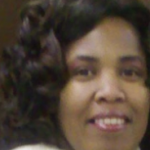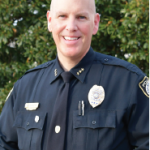Alumni Profiles
Read more about how LGFCU Fellows program alumni are using skillsets learned in the program to improve communities across North Carolina.
When people ask Cleveland County child welfare program manager Alison Clark what her success rate is, she always has the same response: 100 percent.
“Whether it’s through reunification, getting a guardianship, or grandma getting custody—when you see that light come back on in these children’s eyes, you really get to see the difference you make in their lives,” Clark said.
For 25 years, Clark has answered the call of public service. Having worked to arrange adoptions, license foster homes, and set up guardianships for the Cleveland County Department of Social Services, she draws on an impressive breadth of experience to manage child permanency programs for the county.
One experience that she was lacking, however, was working with millennials.
Because of Cleveland County’s small size, the department often served as a training ground for young practitioners in the fields as they are studying to earn master’s degrees in social work.
After they complete school, many leave Cleveland County to pursue positions in nearby Mecklenburg County. Sensing a missed opportunity for the county to better retain these young employees, Clark applied for the Fellows program with the aim to learn strategies to keep them in Cleveland County.
Once accepted into the program, she took the Leadership Practices Inventory that shed helpful insight on how her behaviors and action she could improve processes and better engage her younger peers.
“The feedback was that I hold myself to a higher standard. I have to do things myself versus asking or delegating,” she said. “I thought I was helping take things off their plate, but my staff may actually think I don’t trust them with important work. That helped me look at my work through a different lens.”
Coming from a small county, Clark admits she felt a little intimidated before meeting the other Fellows in her cohort. But her fear of feeling out of place was unfounded. In fact, her peers—regardless of their respective organization’s size—all shared an important obstacle to success.
“We understood each other,” she said. “We all were facing the same barriers to everyday work: how to do more with less.”
“Fellows prepares you and gives you the tools to do that, but we’ve got to remember that we make the changes to the environments we are supervising,” Clark said. “The house will still need to be built when you get back.”
Since graduating from the program in 2016, Clark has set out to do just that. Armed with the tools she learned, she is slowly but surely instilling a sense of confidence and mutual trust throughout the office.
For an often under-resourced department from an often overlooked county, this has been an essential ingredient in reengaging her team members—both new and old—under their mission to bring back that sense of light to children’s eyes across Cleveland County.
“You learn to build esteem where it may not have been. You’re giving confidence to an environment where we don’t get it. And we needed that.”
Chris Gaddis has worked for the City of Burlington Police for 25 years. Not only has Burlington changed significantly in his time as an officer, but law enforcement has changed. The one constant, he has learned, in part through the LFGCU Fellows program in 2014, is that leadership is everyone’s responsibility and learning how to relate to different people.
“To lead, you have to be able to communicate, you have to be able to interact. And that’s the most important thing that has helped me throughout my career.”
Whether internally or externally, community members, employees, or council members, Gaddis said his work is all about being able to bridge communication and knowledge gaps. The program gave him some insight into how to lead people from different generations, in different backgrounds and career levels.
Up until that point, he relied on his experiences as an employee, examples his own bosses had set, or his own ideas about how to motivate people.
“When I attended the class, I realized that I needed to learn more about who I am…understanding what my strengths and weaknesses were and how to sharpen my tools in order to supervise, manage, and lead.”
The LGFCU cohorts are designed with diversity in mind, and though Gaddis was one of the earliest law enforcement officers to go through the program, a trend that now continues.
“The participants were such a wide range of professions, ages, and tenures, which was really cool,” he said. Gaddis appreciated that he was expected to make an effort to connect with his classmates.
“Even sitting in a different spot every day forced me to participate. I got a lot out of that. I think everybody falls into a comfort zone, even in a two-week class. The staff did a great job of moving everyone. It sounds like elementary school, but it truly works.”
Throughout his career, Gaddis has tried to focus on staff development as both a field training officer and instructor in several disciplines. When he took the Leading for Results course, he had spent close to two decades as a street cop. The program showed him how to inspire leadership in others.
“I had an opportunity to take what I had learned and then turn around and apply it to the new street cops, the new employees of our agency who were trying to find their way in the profession, learning how to serve others, how to connect with the community,” Gaddis said.



